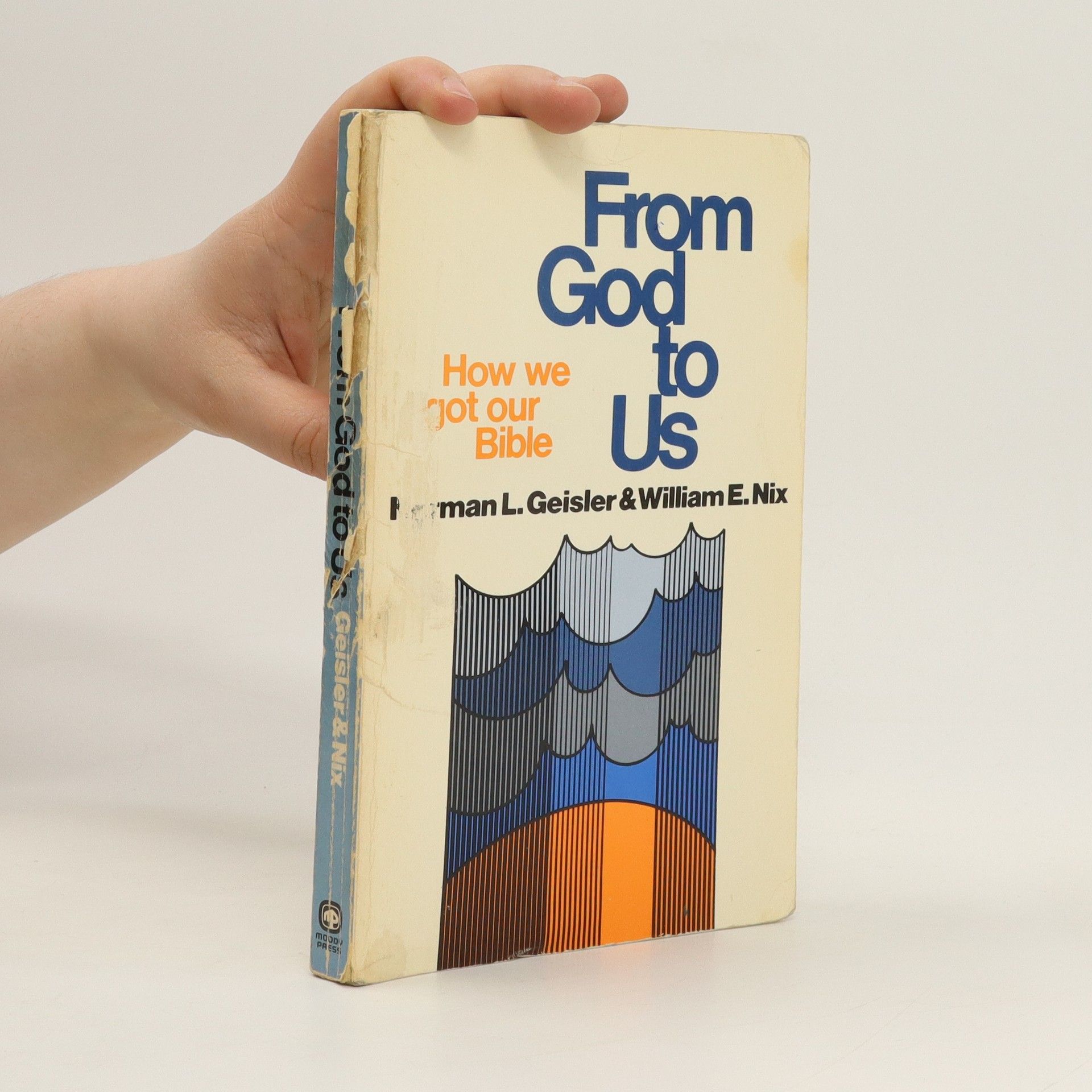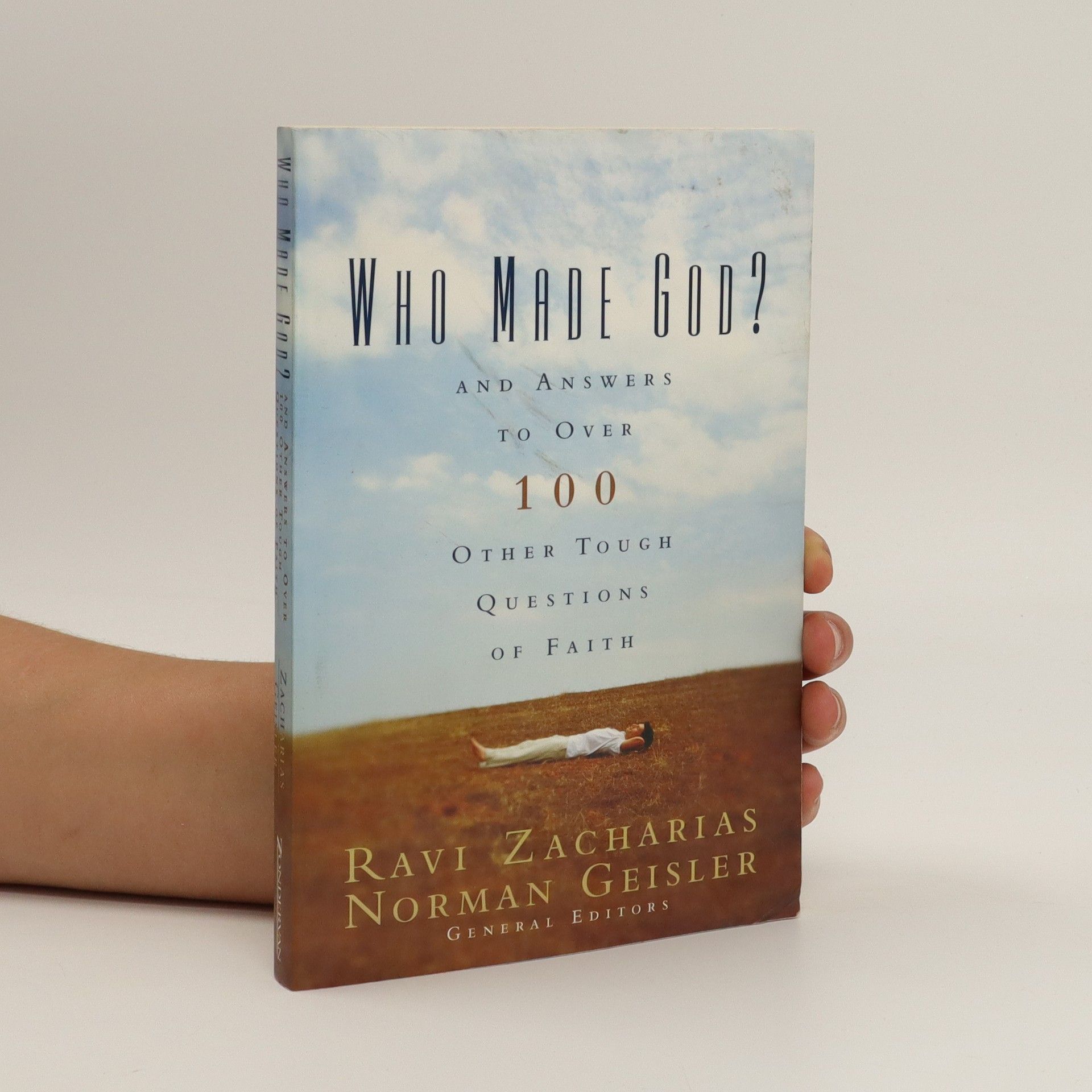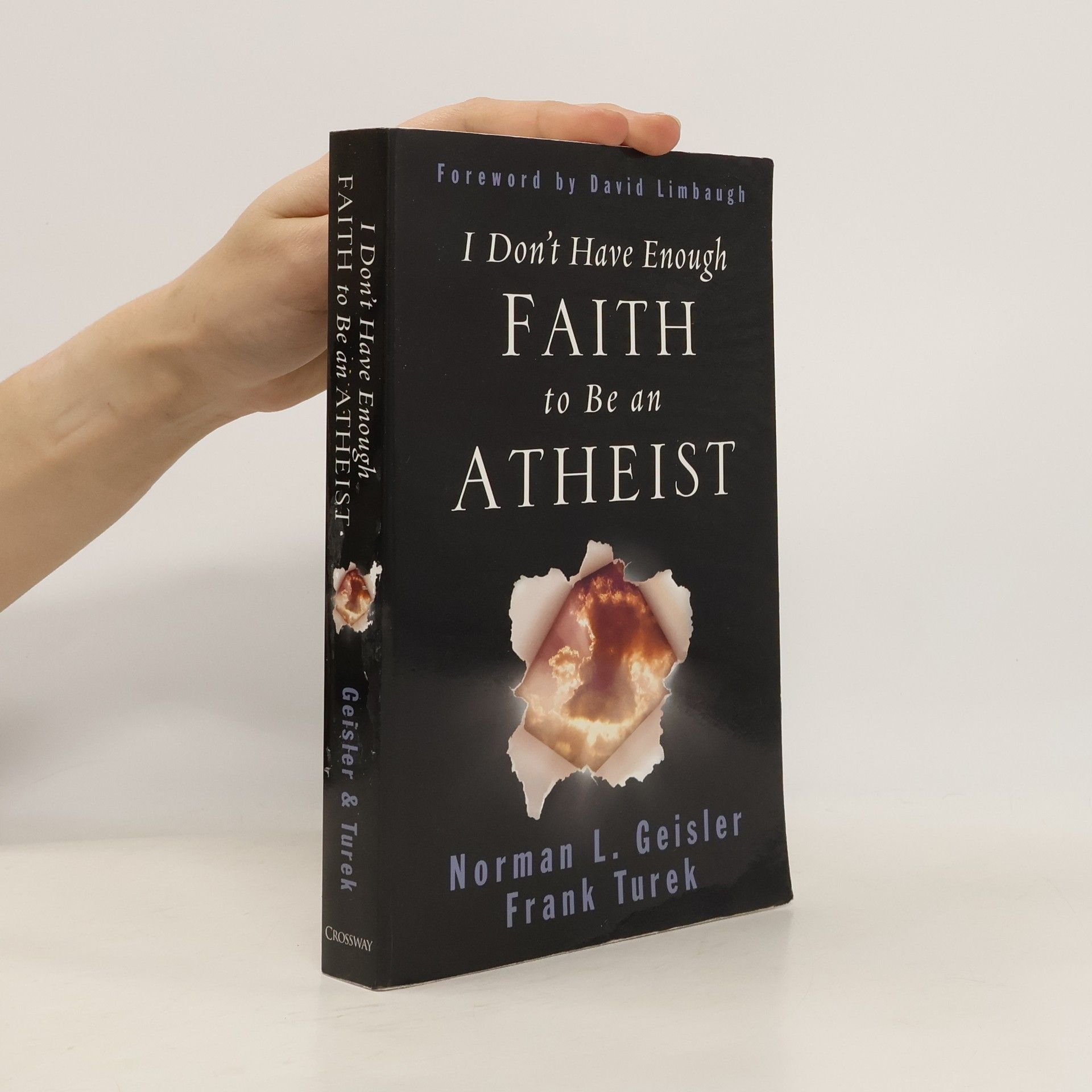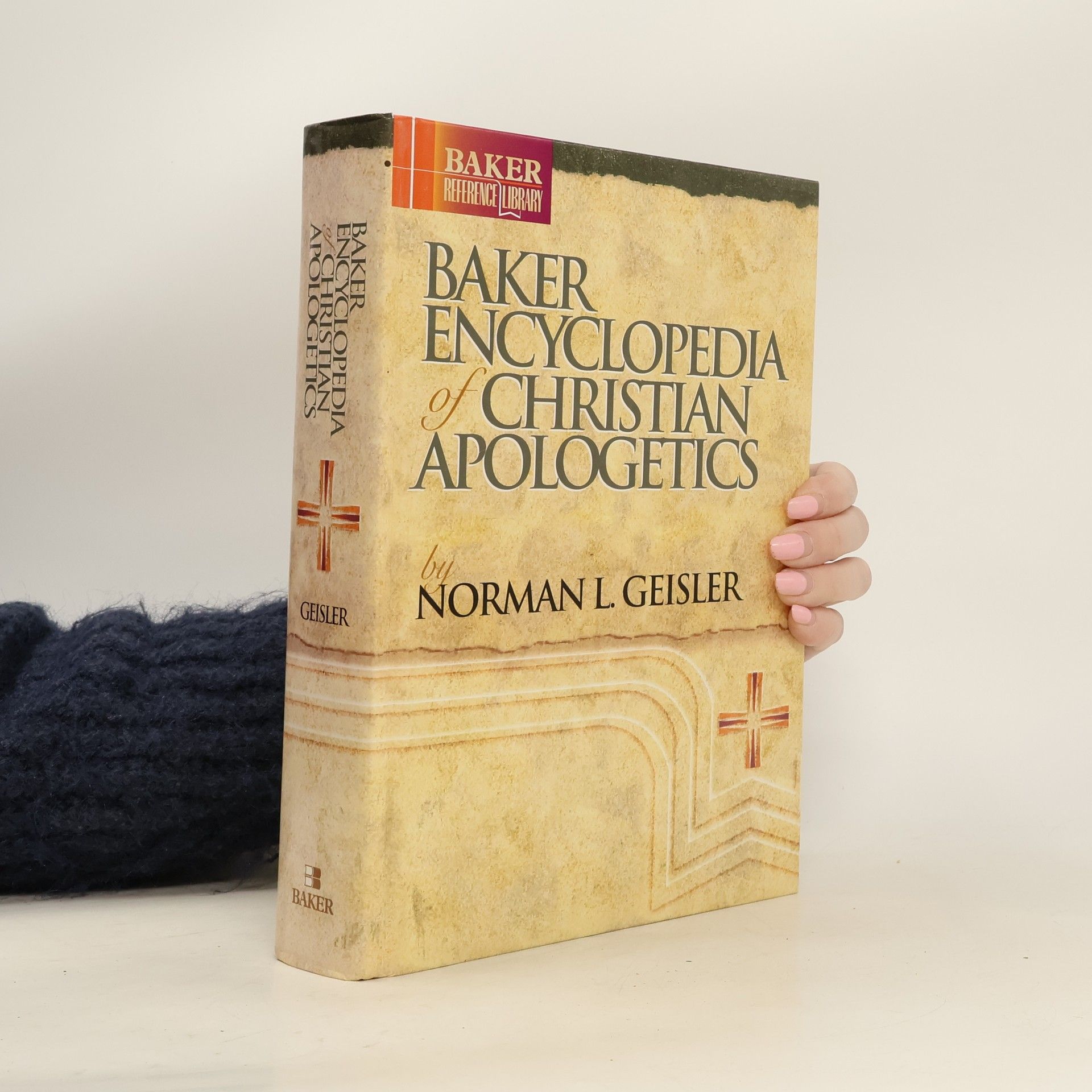The Baker Encyclopedia of Christian Apologetics offers valuable information and advice to a wide audience: pastors and Christian leaders, students on college campuses, those involved in counter-cult ministries – all Christians who encounter skeptics. The author provides extensive coverage of key individuals, philosophical systems and concepts, contemporary issues, difficult biblical passages, classic apologetic arguments, and specific challenges. This resource joins several other volumes in the Baker Reference Library in offering the finest to evangelical scholarship to both scholars and lay people. Each of the contributions is easy to understand and easy to use (thanks to their one-volume format). These volumes serve as ideal home reference books for laity, handy resources for pastors and church leaders, and reliable supplemental texts for courses in Christian colleges and seminaries.
Norman L. Geisler Livres
Norman L. Geisler fut un éminent professeur d'apologétique et de théologie, consacrant plus de cinquante ans à l'enseignement dans des collèges et séminaires évangéliques de premier plan. Son œuvre considérable, comprenant près de quatre-vingts livres, explore en profondeur les thèmes chrétiens, l'éthique et la défense de la foi. La contribution de Geisler réside dans son exploration systématique et accessible de questions théologiques et philosophiques complexes, rendant des idées complexes disponibles à un public plus large. Ses écrits sont appréciés pour leur profondeur, leur précision et leur engagement à faire le lien entre la foi et la raison.






Legislating Morality: Is It Wise? Is It Legal? Is It Possible?
- 272pages
- 10 heures de lecture
America's moral decline is not secret. An alarming number of moral and cultural problems have exploded in our country since 1960--a period when the standards of morality expressed in our laws and customs have been relaxed, abandoned, or judicially overruled. Conventional wisdom says laws cannot stem moral decline. Anyone who raises the prospect of legislation on the hot topics of our day - abortion, family issues, gay rights, euthanasia - encounters a host of objections: As long as I don't hurt anyone the government s should leave me alone.Ó No one should force their morals on anyone else.Ó You can't make people be good.Ó Legislating morality violates the separation of church and state.Ó 'Legislating Morality' answers those objections and advocates a moral base for America without sacrificing religious and cultural diversity. It debunks the myth that morality can't be legislatedÓ and amply demonstrates how liberals, moderates, and conservatives alike exploit law to promote good and curtail evil. This book boldly challenges prevailing thinking about right and wrong and about our nation's moral future.
I Don't Have Enough Faith to Be an Atheist
- 448pages
- 16 heures de lecture
Geisler and Turek argue that Christianity requires the least faith of all worldviews because it is the most reasonable. A valuable aid to those interested in examining the reasonableness of the Christian faith.
Who made God?: and answers to over 100 tough questions of faith.
- 240pages
- 9 heures de lecture
This reference tool on faith presents a summary of accessible answers to over100 commonly raised apologetic questions.
From God to Us
- 256pages
- 9 heures de lecture
This book traces the path of the Bible from God to us and includes discussions of inspiration, the biblical canon, major manuscripts, textual criticism, early translations, and modern versions.
Four Views on Eternal Security
- 304pages
- 11 heures de lecture
Exploring the debate over eternal security, this volume presents four distinct theological perspectives: classical Calvinist, moderate Calvinist, reformed Arminian, and Wesleyan Arminian. Each contributor articulates their view on whether salvation can be lost, followed by critiques and defenses from other scholars. This respectful exchange allows readers to evaluate the strengths and weaknesses of each position. As part of the Counterpoints series, it provides a scholarly platform for understanding complex issues in Christian theology.
Wie kann ich meinen Glauben verteidigen?
Von Jesus Apologetik lernen
Jesus war der ultimative Verteidiger der Wahrheit und des Glaubens. Lernen Sie direkt von ihm, wie sie ihre Überzeugungen wirksam verteidigen können. Es gibt viele Bücher zum Thema Apologetik, aber wie hat Jesus selbst den Glauben verteidigt? Dieses Buch zeigt, wie unser Erlöser Menschen überzeugte. Zaghafte Christen – oder streitlustige Skeptiker – können in den Gleichnissen, Predigten und Prophezeiungen Jesu entscheidende Argumente für seine Göttlichkeit fi nden. Die Autoren bieten überzeugende Hilfen, wie Christus Neugierige in die Entscheidung stellte. Durch einen neuen Blick auf die Botschaft und die Wunder der Bibel wird Christi fürsorgliche Herangehensweise im Umgang mit Zweiflern neu lebendig. Ein Buch, das vielen helfen wird, überzeugend von Jesus zu reden.

